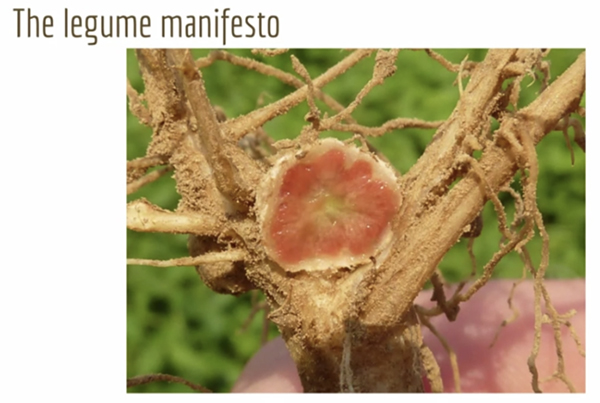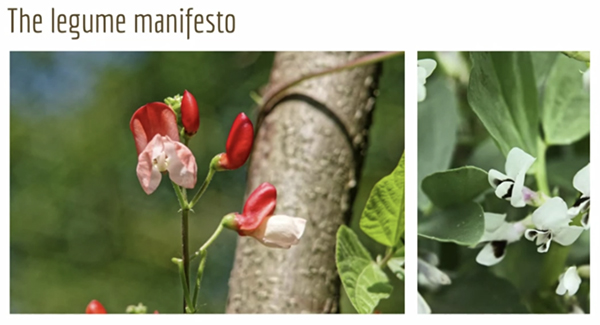January 28, 2022
On Thursday January 28, the Global Bean Project, a European network with links to Kenya and India that aims to promote and increase the consumption and cultivation of legumes, held an introductory webinar.

During the online event, project leaders and key partners gave short presentations about the project so far and their plans for the future. Learning from countries with a rich bean history such as Kenya and India, was highlighted as a key source of motivation for the European members and a speaker from Seed Savers Kenya shared information about the diverse variety of legumes grown in Kenya.
A highlight of the webinar was Donal Murphy Bokern’s presentation of the Legume Manifesto in which he gave a brief explanation of the composition of a legume plant, pointing out the abundance of nitrogen-fixing nodules on the roots and comparing these to the hemoglobin in blood. These nodules, he indicated, are also a key component in the high protein content of legume seeds (pulses).

Image: Global Bean Project
Murphy Bokern explained that the purpose of the manifesto was to address consumers, who should be encouraged to enjoy pulses as a way of both reducing their carbon footprint and as improving their diet, and farmers, for whom legumes don’t provide the same profitability in Europe as grains and cereals. European agriculture, he went on to say, is unique: providing all the foodstuffs for 450 million people supported by 10 million tons of nitrogen and 4 million tons of imported protein. Citizens, he urged, must accept the need to help farmers diversify their crops in order to harness the benefits of pulses.
On the Global Bean Project website, one of the project aims is that the “Local cultivation of legumes replaces unsustainable imports of animal feed, especially soybeans, to Europe and the use of mineral fertilizer through natural nitrogen fixation.”
Another main part of the project is the development of show gardens, about which Ekkehard Spiegel gave a short presentation. The purpose of these gardens is to encourage people to exchange seeds and share their experiences with bean cultivation as well as promote the value of growing legumes to the general public not just because they are good for soil health but also because they are beautiful plants.

Image: Global Bean Project
The project is coordinated by the Zukunftsstiftung Landwirtschaft (Foundation on Future Farming, ZSL), which already has a 2000m² “global plot” show garden in Berlin, to which the project arranged a visit in December 2021.
Another highlight of the webinar included Cecilia Antoni’s short segment in which she shared cultivation instructions for fava beans and underlined the decreased cultivation and consumption of this pulse, which was for many centuries a staple food in Europe and was in fact the only bean on the continent.
In advance of their next meeting, on World Pulses Day, the Global Bean Project is hosting a “Bean Beauty Contest”, the winner of which will be chosen from audience photos of beans and announced on February 10, during the meeting.
As well as the next meeting on World Pulses Day, there will be several events throughout the year, including a Seed Exchange Festival on March 2.
More information about the project can be found here: https://www.2000m2.eu/about/

Global Bean Project / Kenya / India / Donal Murphy Bokern / Ekkehard Spiegel / Zukunftsstiftung Landwirtschaft / Cecilia Antoni
Disclaimer: The opinions or views expressed in this publication are those of the authors or quoted persons. They do not purport to reflect the opinions or views of the Global Pulse Confederation or its members.